Praise for Surviving Parental Alienation
In Surviving Parental Alienation, Amy Baker and Paul Fine honor the painful and tragic stories of parental alienation and, in doing so, honor the parents and children who have suffered because of parental alienation. They provide a deeper understanding of why people find and marry people who will eventually alienate their children from them, how the alienating parents sell the poisonous message to the children, and howsometimes when it seems least likelythe alienated children and their lost parents find their way back to each other. This is a moving book and a must-read for parents and professionals alike. S. Richard Sauber, PhD, ABPP, family forensic psychologist and editor of the American Journal of Family Therapy
An important and powerful bookfor parents and professionals! Baker and Fine have combined tragic stories of children rejecting a parent with a solid analysis of the often-hidden behaviors that lead to such alienation. But most of all, they have included stories of hope and reconciliation (equally including fathers and mothers who have been targets of blame), with effective strategies for parents who want to reach out to their alienated children. This book helps show the importance of understanding alienating behaviors and, without focusing on blame, but rather what to do now with many excellent suggestions. Bill Eddy, family lawyer, family therapist, and coauthor of Splitting: Protecting Yourself While Divorcing Someone with Borderline Personality Disorder
Surviving Parental Alienation is a work that will help reduce the emotional isolation that an alienated parent feels. The authors give the alienated parent hope and reason for not giving up and walking away from the children they love dearly. Douglas Darnall, PhD, author of Beyond Divorce Casualties: Reunifying the Alienated Family
Surviving Parental Alienation
A Journey of Hope and Healing
Amy J. L. Baker and Paul R. Fine
ROWMAN & LITTLEFIELD
Lanham Boulder New York Toronto Plymouth, UK
Published by Rowman & Littlefield
4501 Forbes Boulevard, Suite 200, Lanham, Maryland 20706
www.rowman.com
10 Thornbury Road, Plymouth PL6 7PP, United Kingdom
Copyright 2014 by Amy J. L. Baker
All rights reserved. No part of this book may be reproduced in any form or by any electronic or mechanical means, including information storage and retrieval systems, without written permission from the publisher, except by a reviewer who may quote passages in a review.
British Library Cataloguing in Publication Information Available
Library of Congress Cataloging-in-Publication Data
Baker, Amy J. L.
Surviving parental alienation : a journey of hope and healing / Amy J. L. Baker and Paul R. Fine.
pages cm
Includes bibliographical references and index.
ISBN 978-1-4422-2677-7 (cloth : alk. paper) ISBN 978-1-4422-2678-4 (electronic)
1. Parent and child. 2. Parent and adult child. 3. Parental alienation syndrome. 4. Alienation (Social psychology) 5. Children of divorced parentsCounseling of. I. Fine, Paul R., 1955 II. Title.
HQ755.85.B3347 2014
302.5'44dc23
2013045191
 TM The paper used in this publication meets the minimum requirements of American National Standard for Information Sciences Permanence of Paper for Printed Library Materials, ANSI/NISO Z39.48-1992.
TM The paper used in this publication meets the minimum requirements of American National Standard for Information Sciences Permanence of Paper for Printed Library Materials, ANSI/NISO Z39.48-1992.
Printed in the United States of America
We dedicate this book to our parents and our children,
from whom we have learned so much about forgiveness, hope, and
healing, and to parents and children affected by alienation. May they all come home to each other.
Acknowledgments
We would like to gratefully acknowledge the wonderful team at Rowman & Littlefield, including Kathryn Knigge, who shepherded the book through the process and was helpful at every turn. The book has been greatly improved through the careful and attentive editorial skills of Naomi Mindlin. We extend a special acknowledgment to our darling daughter Alianna, who assisted in many ways throughout this project. We also would like to thank the many parents who wrote (and tried to write) their stories for the book. They are unsung heroes.
Chapter 1
Introduction
And this is why
We tell the story.
Why we tell the story...
Life is why... ,
Pain is why... ,
Love is why... ,
Grief is why... ,
Hope is why... ,
Faith is why... ,
You are why....
So I hope that you will tell this tale tomorrow.
It will help your heart remember and relive.
It will help you feel the anger and the sorrow
And forgive....
For out of what we live and we believe
Our lives become
The stories that we weave.
Lynn Ahrens from Once on This Island
It is a fairly routine occurrence for a professional in the field of parental alienation to receive an e-mail from a targeted parent asking if she would like to hear that parents parental alienation story (sometimes the person simply sends the story without asking) or asks her if she would like to write a book about that parents experience with parental alienation. Many of these parents explain that someone (usually an attorney or custody evaluator) has informed them that they have the worst case of parental alienation ever seen, and these parents have become convinced that something good can come from their telling their story. They are deeply invested in sharing their ordeal with others in the hope that they and others can gain something by doing so.
Why We Tell and Read Stories of Pain and Hardship
The reasons why targeted parents want to tell their story are varied and all of them are valid and easily understandable. Some desire an emotional release through the retelling of the story or want to warn others of pitfalls and mistakes to avoid. For other parents, the impetus is to try to rise above their pain by turning it into a narrative, an external object that resides outside of them. In this way they separate and detach from the emotional pull of their parental alienation trauma. Some parents seek validation and understanding for their parental alienation journey, which too often involves feeling blamed, shamed, and misunderstood by friends, family, and professionals. Yet another reason to write their story is to process it in a new and deeper way, to come to a new understanding of what has transpired. They hope that perhaps, finally, they can arrive at a resolution or solution, or just find some meaning where before they could not find any.
They are right to want to share their story. They do have something of value to share. Their story is important. Each story has something to teach, something universal about the human spirit and about a parents love for his/her child, as well as something specific about parental alienation.
Yet another reason to share ones story is to offer a vision of hope and healing for those who have not yet achieved their desired outcome. Unfortunately, stories of successful reunifications of formerly alienated children are relatively rare in the literature. This may be because of survivors guilt at having succeeded where others haveto datefailed, or it may be because newly reconciled parents have no time to write their story, as they are preoccupied with the formidable task of reengaging with their lost child. There may also be a desire to forget the whole ordeal rather than relive the agonizing details of ones pain, loss, and suffering.
This has been unfortunate because reading stories can be as helpful as writing stories. Mental health professionals have identified several potential benefits from reading other peoples accounts of challenges and difficultiesfor example, those benefits discussed in Organizing for Bibliotherapy: The Science of the Art.

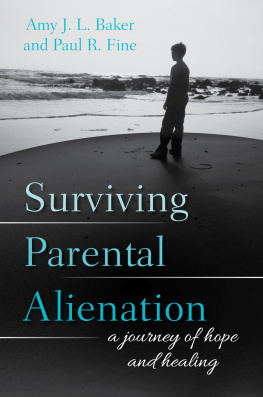

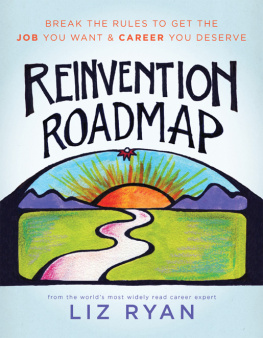
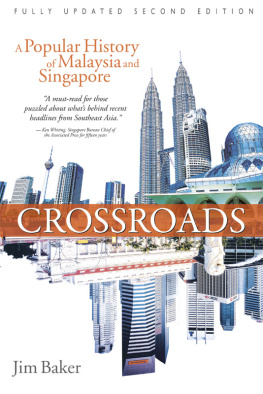
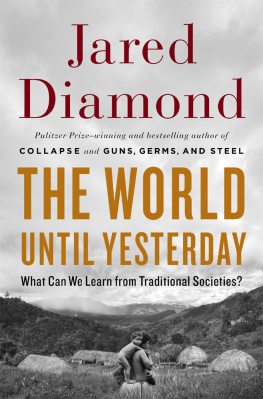
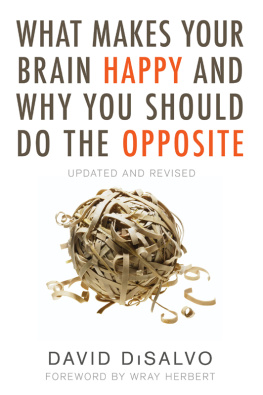



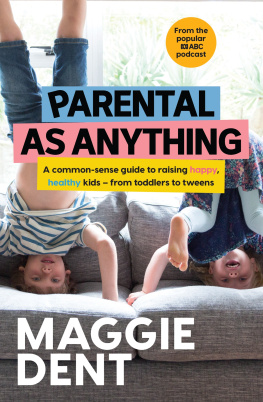
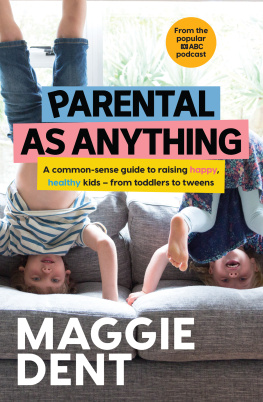
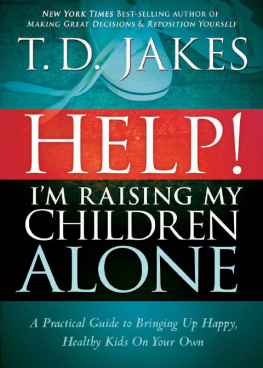
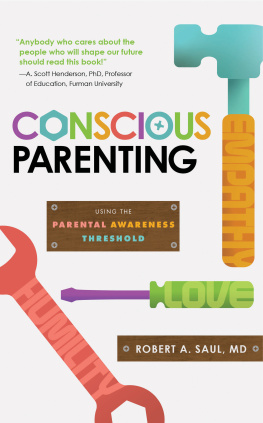
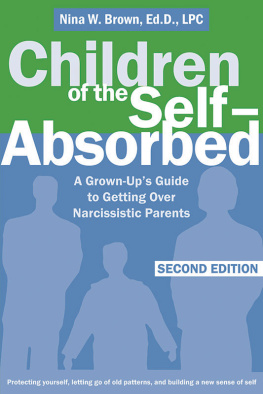
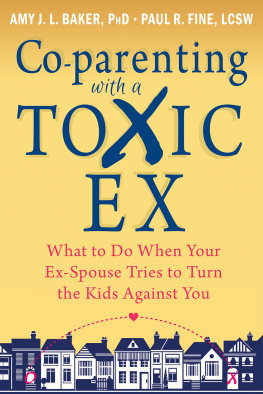
 TM The paper used in this publication meets the minimum requirements of American National Standard for Information Sciences Permanence of Paper for Printed Library Materials, ANSI/NISO Z39.48-1992.
TM The paper used in this publication meets the minimum requirements of American National Standard for Information Sciences Permanence of Paper for Printed Library Materials, ANSI/NISO Z39.48-1992.